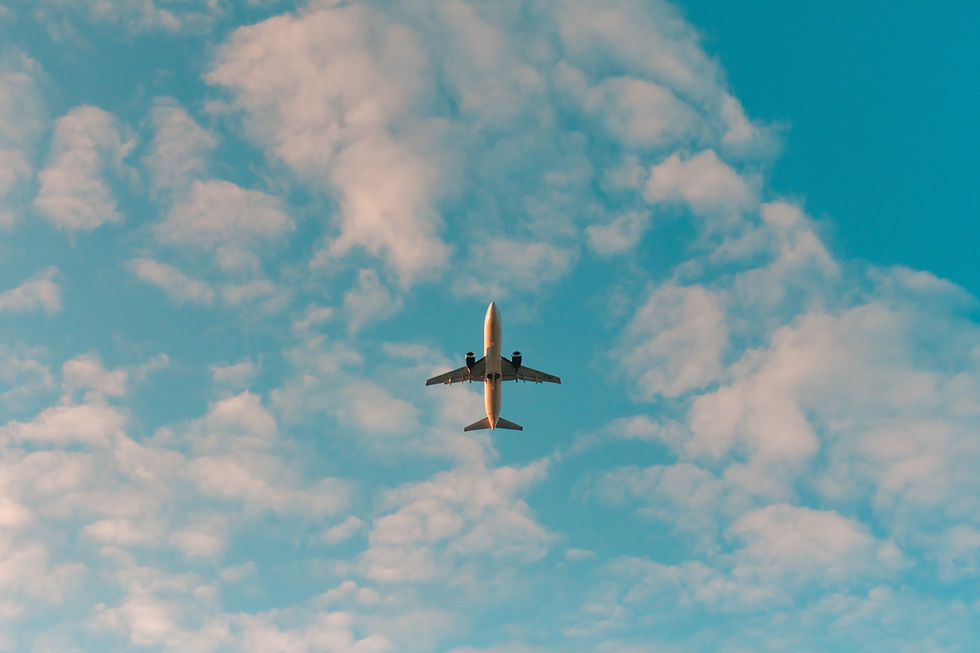Why Travel with Children?
- Mary Alex Daniels

- Dec 10, 2023
- 4 min read

Why take children to Europe? Why wouldn’t you? From the castles of Scotland, to the art of Florence, the awe of the Eiffel Tower, to the beaches of Greece, there is a destination for every type of family. You can expose your children to and experience multiple cultures, languages, and cuisines.
The thought of traveling to Europe with children can be intimidating, and leave one with a lot of questions. Where to even start?

One of my favorite places to start is with your children themselves. Talk to them about different places, explore online together, ask them where they would like to go, or what they have been learning at school. Likewise, something of interest for children can be found in any European destination. Tying planning into the interests of your children is one of the best ways to plan a successful trip for everyone.
Before you leave, expose your children to the places and sights you’ll be seeing. Amazon is an easy resource to find age appropriate travel books for children, geared toward specific monuments, cities or countries. These can engage children with treasure hunts, fun sightseeing suggestions, and activities tailored to them. Let them help plan some of your agenda. For younger children, coloring books of where you will be going are a wonderful resource (not to mention great in flight entertainment). Look for fiction books or movies that take place at your destination, these will bring the place to life and build excitement.
Make use of free language apps. My kids love Duilingo. Learn some words and phrases in the languages you will be exposed to on your trip. Try to have everyone learn how to say hello, goodbye, excuse me, thank you, yes, and no. Learning a bit of the language is valuable in helping kids feel more comfortable.
Setting expectations can go a long way in helping, especially younger children, know what will happen on their vacation. Talk to them about how you will travel. They may feel nervous if this is their first time on a long fight or being away from home. Children enjoy photos of where they will visit and the accommodations they will stay at.

Flying can be one of the most daunting parts of a European vacation with children. Make sure they know how they will travel, how long a flight will be in terms they understand (you will have time for 4 movies, for example). Let them know how they can keep busy during their time in the sky. Being prepared is the key to success on a plane. Children may be comforted by bring a small stuffed animal or blanket with them. Fill their backpack with things that interest them and keep them busy, whatever that may be. A lot of parents will take away electronic devices for several days before a flight, therefore building excitement for children to be able to have them. New downloads and games are always a good idea. I have learned to never rely on plane food, no matter what class you are traveling in. Be sure to have protein rich, low sugar snacks that you know your child will eat. As a Mom, I like to have a small toiletry bag with medical essentials. Children’s Tylenol (over Motrin, as Motrin on an empty stomach can be irritating), Pepto Bismo, dramamine, bandaids, and hand sanitizer/wipes. If your child is not an experienced flyer or has a history of motion sickness, carrying a Relief Band can be helpful.
Organize and plan your days, but not too much. The amount of choices for activities, sightseeing, and dining is overwhelming. Many families will try to fit in as much as possible. This will lead to burnout for everyone. Be sure to leave time for cafe stops, playing in parks, or just being spontaneous. Pay attention to the cues your child is giving you. You may need to make a stop at the hotel for a downtime or cancel a dinner. If your heart is set on an elaborate meal out, that may be the time to plan for the hotels babysitting service or contact a local nanny agency.
It is, however, a good idea to plan popular tourist sights in advance (especially museums or monuments). Look into tours available. Using a tour guide in a major location always leads to less frustration and everyone getting more out of the experience. You will be amazed at the knowledge a guide can offer. They will tailor their tour to your family’s interests. Guides can also save you valuable time waiting in lines or wandering around trying to find your destination.

Eat like a local. You did not travel all the way to Europe to eat American fast food. Exposing your child to traditional foods of an area is one of the most important aspects of travel. A positive attitude goes a long way. Many kids will dine on foreign foods with enthusiasm if they see you doing so. There is always something they will eat. If you think you have a member of the “picky eater club” prepare them by cooking at home or trying cuisine before you leave. Kids love researching descriptions of foods, let them know what expect. A bit of preparation may inspire your kids too.
As with any travel, always expect the unexpected. When things do not go as planned, make it part of the adventure, and the lesson. Problem solving, patience, and resilience are among the valuable skills learned through travel. From historical exposure to cultural awareness, children will begin to understand that the World is a large and diverse place. You are helping your children develop a broader perspective and deeper understanding of the World they live in.
Most of all, you are creating memories and spending time together as a family, offering perhaps the best reason of all to say bon voyage.


Comments